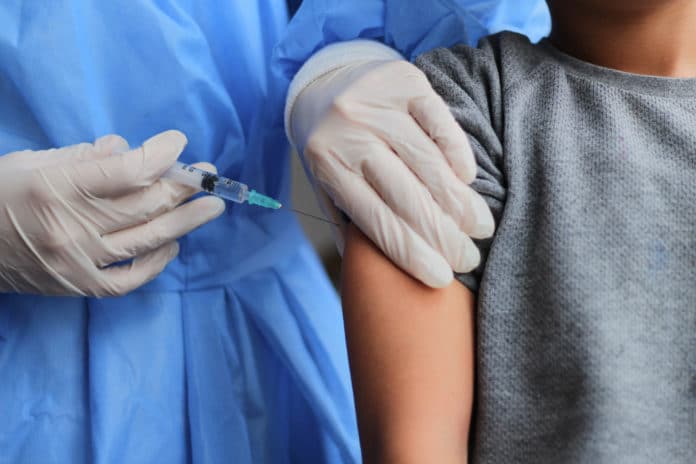Parents need to think carefully before giving their children the COVID shot. There are risks.
The CDC recently released a statement urging parents to vaccinate their children 6 months to 5 years against COVID-19. Since the CDC’s recommendation, Politico has reported that “just over 5 million doses” have been delivered around the country. However, the CDC’s goal of 20 million children receiving the shot may be unattainable as most parents are unlikely to inject their children, even if they themselves had the shot.
This hesitancy isn’t unique to parents. Physicians, public officials, and various experts in science and ethics are also concerned over the push by the FDA and CDC to give young children the COVID shot.
Dr. Martin Makary, MD, MPH, wrote, “Each parent will have to assess their own child’s individual risk, but in my opinion, the case to vaccinate young healthy kids is not compelling right now.” His article cited the powerful protection provided by natural immunity (which most children have due to the highly-transmissible nature of COVID), and declared the shot redundant and potentially harmful for healthy young children. Pfizer’s study found that 50 percent of injected children experienced systemic adverse events, including fevers, injection site sensitivity, and more severe reactions to a subsequent onset of COVID-19.
An open letter sent on June 30, 2022, to the U.K. Medicines and Healthcare products Regulatory Agency (MHRA) signed by over 76 doctors outlined the risks associated with giving the COVID shot to children under 5. The letter cited the evidence gaps in Pfizer’s documentation, including a protocol change mid-trial, the lack of a significant difference between the results of the placebo and test groups, and the low 25 percent efficacy rate. Furthermore, the doctors’ letter emphasized the unknown long-term effects of the injection.
The decision to give the COVID shot to a child should ultimately begin and end with parents. The government has no place coercing parents into a medical decision for their child. Eric Hargan, former Deputy Secretary of the Department of Health and Human Services, writes, “Parents should be allowed to contemplate the decision to vaccinate their children without political pressures … it is paramount that we respect the parents’ right to evaluate the evidence for themselves in a calm and reasonable way.”
Vaccine hesitancy in parents is not a new phenomenon. In a 2000 study, 19 percent of parents reported “concerns over vaccines,” while a 2009 study found that number to be 50 percent. Politicizing COVID-19 may exacerbate current parental concerns over childhood vaccines.
COVID shot mandates and pressuring parents to inject their children may also increase future vaccine hesitancy. This hesitation is not limited to the COVID shot. Pushing families that are already hesitant, according to the letter to MHRA, risks increasing parental resistance to other vaccines and overall skepticism of the health care system.
Government officials should never be allowed to usurp the right of parents to protect and make medical decisions for their children. Doctors should empathetically listen to parental concerns over vaccines, while clearly, and without bias, laying out the risks of both the shot and COVID-19 infection — without pressuring parents to choose the shot.
Physicians should prioritize the patient in front of them, and their preferences. It is vital that parents, and someday their children, be able to trust physicians. This trust will not be earned by simply following the CDC’s recommendation to inject children regardless of health status and natural immunity. Doctors will, however, earn that trust by providing parents with all of the facts and the freedom they need to make the best decisions for their children.

















